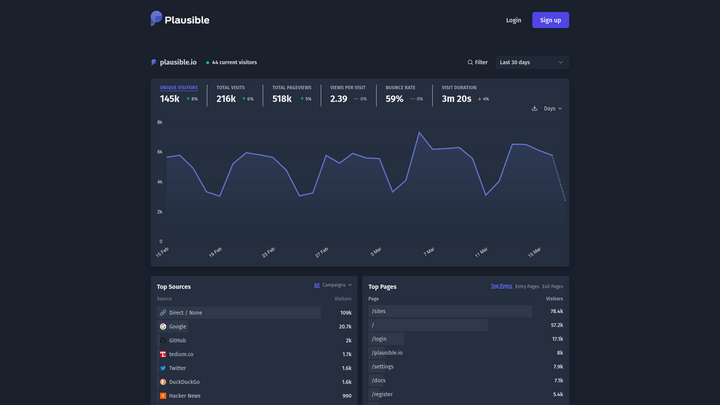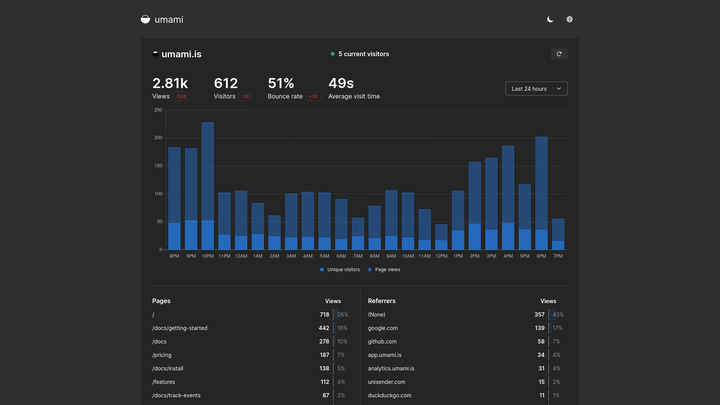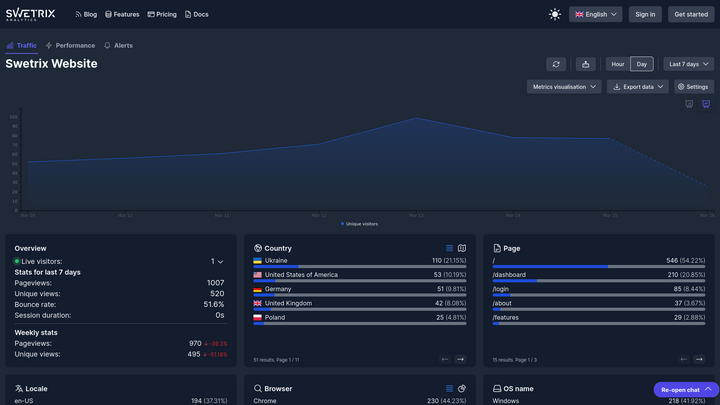-1280x720.jpg)
Tech stacks: Cookieless and privacy friendly analytics solutions
Let's get the pre-amble out of the way, Google Analytics is a very powerful piece of software for analytics but its power comes from a total disregard for user privacy. So much so, that it's increasingly been declared illegal in several EU countries such as France, Austria, Denmark and more.
This may change in the future but for now the analytics software space has never been more competitive.
We'll cover some of our favourite tools and compare some of their pros and cons so you can choose the right tool for you. We have slimmed our search down to two services Plausible and Umami while our criteria for selection has been:
- Allows cookieless analytics
- Is open source and self-hostable
- Is mature and maintained enough for production use
- Must be modern and provide the core features needed for analytics
Let's face it, nobody likes cookie banners
Users don't like being slapped in the face with banners on every website they visit, designers hate designing them, developers hate implementing them and clients can end up losing visitors because of them.
In reality cookie banners really cheapen a user experience that might otherwise be delightful and yet we have come to accept it as some sort of necessary evil when that really isn't the case. The services we're covering today all have cookieless analytics as a feature for you to get the most useful data without breaching the privacy of individual users.
cookie banners really cheapen a user experience that might otherwise be delightful
Before we get started, there's also that point of discussion to cover, what kind of data do you really need? If your analytics isn't giving you enough information about a feature, we would recommend getting feedback directly from your users and not further invading their privacy in search of an answer that may not even be there. This will save you time as well and give you directly useful and actionable information.

The interface is clean and they have very good documentation with API tokens available and per-website sharing permissions. You can also easily copy an HTML code to embed your analytics anywhere and get a public shareable link.

The feature we like most about Umami versus Plausible is that you can host Umami entirely on a serverless infrastructure making it super easy to put it up on Vercel or Netlify, all you need to do is provide a remote database connection somewhere. This freedom of hosting environments makes the software quite versatile and enables websites with minimal amounts of traffic to host their analytics entirely for free, reducing the entry barrier.
They do lack the API authentication keys that Plausible has, however they still have a well documented API that you can authenticate to via a username and password, though you will need to refresh your tokens.
Honourable mention: Swetrix
Swetrix is a bit of an unknown at the moment, as they have a working product however they lack a certain UI polish and an API that would enable richer integration with other services.
They are fully aware of these shortcomings and the reason we're giving them an honourable mention is their stern adherence to open source standards and their ambitions for the Swetrix platform and we look forward to what they bring to the table in 2023.

Alternatives
The other giant in this space we haven't covered is Matomo, and though they are bigger than any of the solutions we've mentioned here we found their product to be rather outdated with a much older tech stack and user interface; the age of the product also means there's added friction to self hosting it yourself and for these reasons we can't recommend it unless you really want what Matomo has to offer.
Remember if you like any of these open source tools, you can also pay them for their cloud offering so you don't have to handle the hosting infrastructure yourself.
We will continue to talk about some of our favourite tech stacks so make sure you stay up to date via our Twitter.